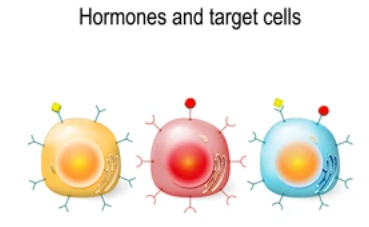Inflammation is the pathological basis of many diseases such as Crohn's disease, atopic dermatitis, autoimmune diseases, rheumatoid arthritis, and ulcerative colitis. Although many drugs have been developed to treat inflammatory diseases today, clinical use results suggest that there is still room for improvement. Anti-inflammation-disease-specific antibodies are a potential approach to treating inflammatory diseases. Creative Biolabs offers comprehensive services to support the development of inflammation-specific antibodies. Based on our well-established hybridoma platform and phage display platform, we can provide you with comprehensive custom antibody production services.

The most commonly used anti-inflammation drugs are non-steroidal anti-inflammation drugs, and aspirin is a representative. This class of anti-inflammation drugs significantly inhibits the inflammatory response and relieves inflammatory pain. At the same time, they have no significant immunosuppressive effect. The second class is glucocorticoids, which are nuclear receptors and significantly regulate the transcription of various immune and non-immune genes. However, glucocorticoids have numerous targets and can cause serious toxic side effects with long-term or high-dose use. Therefore, it is crucial to develop anti-inflammation drugs that are highly selective, low in toxicity, and do not interfere with the body's protective immune function. Anti-inflammation-disease-specific antibodies with high specificity, high affinity, and low toxicity are a potential therapeutic strategy.
The mechanism of action of anti-inflammation-specific antibodies is usually in two ways. One is to bind to inflammatory cytokines or membrane receptors, inhibiting inflammatory cell function and preventing the movement of inflammatory cells to the site of the lesion. The second is to inhibit the adhesion and spread of leukocytes that reach the site of the lesion, which in turn prevents the release of inflammatory or toxic substances from these cells, delaying the pathological process that leads to tissue damage and relieving symptoms to cure the disease. To optimize the function of antibodies for the treatment of inflammatory diseases, the following aspects can generally be addressed. The first is effect function minimization. This is due to the fact that the effector function is often the source of adverse reactions. Then comes the enhancement of the antibody effect function and finally the optimization of the half-life of the antibody to extend the duration of action of the antibody.
Anti-inflammation-disease-specific targeting antibodies have been shown to play an important role in the treatment of many inflammatory diseases. Based on our extensive hands-on experience, Creative Biolabs is pleased to share our knowledge and experience in anti-inflammation disease-specific target antibodies to help your research run smoothly.
All listed services and products are For Research Use Only. Do Not use in any diagnostic or therapeutic applications.